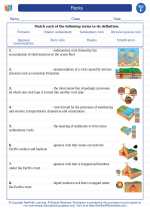Hormones
Hormones are chemical messengers that are produced by various glands in the endocrine system. They are released into the bloodstream and travel to target cells or organs where they exert their effects. Hormones play a crucial role in regulating various bodily functions, including metabolism, growth and development, sexual function, and mood.
Types of Hormones
There are several types of hormones, including:
- Steroid Hormones: These hormones are derived from cholesterol and include hormones such as cortisol, estrogen, and testosterone.
- Peptide Hormones: These hormones are made up of chains of amino acids and include hormones such as insulin and growth hormone.
- Amino Acid-Derived Hormones: These hormones are derived from amino acids and include hormones such as adrenaline and thyroid hormones.
Functions of Hormones
Hormones have diverse functions in the body, including:
- Regulating metabolism and energy balance
- Controlling growth and development
- Regulating reproductive functions
- Maintaining electrolyte and water balance
- Modulating immune function
- Affecting mood and behavior
Regulation of Hormones
Hormone levels in the body are tightly regulated through feedback mechanisms. When hormone levels deviate from the normal range, the body initiates feedback loops to either increase or decrease hormone production to maintain homeostasis.
Disorders Related to Hormones
Imbalances in hormone levels can lead to various disorders, such as diabetes, thyroid disorders, growth disorders, and reproductive disorders.
Study Guide
To study hormones effectively, consider the following key points:
- Understand the different types of hormones and their chemical structures.
- Learn about the functions of various hormones in the body and how they contribute to different physiological processes.
- Examine the mechanisms of hormone regulation and the feedback loops involved in maintaining hormone balance.
- Explore common hormone-related disorders and their underlying causes.
- Review case studies and real-life examples of hormone imbalances to understand their impact on health and well-being.
By grasping these fundamental concepts, you will gain a comprehensive understanding of hormones and their role in maintaining bodily homeostasis.
.◂Science Worksheets and Study Guides Sixth Grade. Rocks

 Activity Lesson
Activity Lesson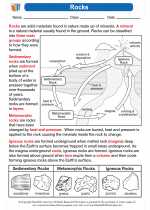
 Worksheet/Answer key
Worksheet/Answer key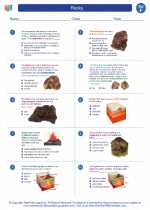
 Worksheet/Answer key
Worksheet/Answer key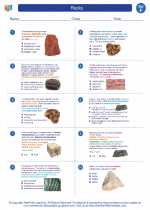
 Worksheet/Answer key
Worksheet/Answer key
 Worksheet/Answer key
Worksheet/Answer key
 Vocabulary/Answer key
Vocabulary/Answer key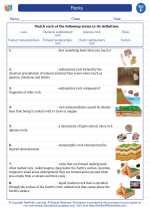
 Vocabulary/Answer key
Vocabulary/Answer key
 Vocabulary/Answer key
Vocabulary/Answer key